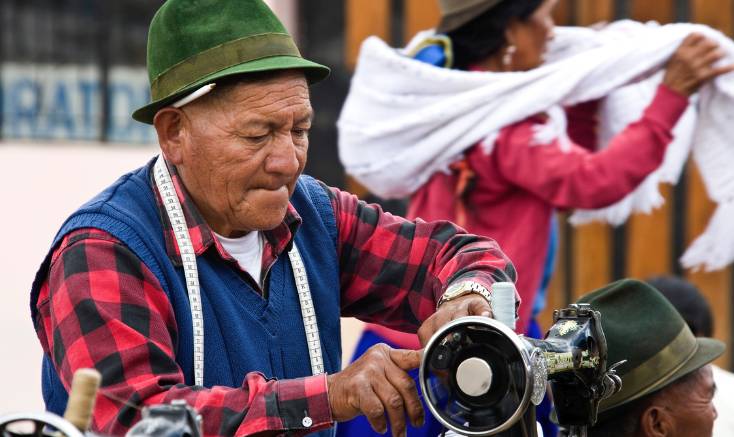For decades, old age has often been thought of—and feared—as a stage marked by dependency, frailty and social withdrawal. In much of Latin America, this idea has been reinforced by stereotypical images of passive “grannies,” in need of care and detached from the productive or digital world. But what happens when older adults describe themselves very differently?
A recent study in Chile, conducted by the research firm Datavoz, presents findings that challenge the stereotypes still prevalent across our societies. According to the report, 85% of people over 65 consider themselves fully self-sufficient; nine out of ten use social media with ease and a similar share outright rejects the idea of living in a nursing home. Even more striking: 88% say they don’t feel like a burden on their families.
The gap between this self-image and how they’re perceived by younger people is notable, pointing to a generational disconnect likely mirrored in other countries in the region. Aging, it seems, is not synonymous with dependency, but with autonomy. Yet public perception lags behind demographic change.
All of Latin America is undergoing accelerated population aging. According to ECLAC data, by 2050 one in four people will be over 60 and in six countries of the region, that figure will be closer to 30%. Still, our public policies, social services and cultural narratives continue to operate from a youth-centered paradigm—one that not only ignores older adults’ autonomy but often actively restricts it.
How can we ignore this when only 53% of young Chileans say they would reject living in a nursing home, compared to 84% of current older adults?
Could the real gap be not just about age, but about perspective?
In this context, the urgency of reviewing our public policies becomes clear. It’s not enough to expand welfare programs—we need to rethink the very design of our cities, health systems, transportation networks and community spaces so they support older adults as autonomous individuals, not as passive dependents. Latin America is not only aging rapidly; it is aging unequally, with deep disparities across gender, class and geography. Without deliberate, forward-looking action, we risk arriving at 2050—with one in four residents over the age of 60—relying on outdated social systems built for a population pyramid that no longer exists.
The Datavoz study doesn’t offer easy solutions, but it raises urgent questions: Who should care for older adults—the state, families, or a hybrid model? How do we uphold their right to choose how and where to live? Are our societies prepared to offer dignified, active and prejudice-free alternatives?
The economic picture is also nuanced: nearly six in ten older adults say their income fully covers their expenses, though there’s a gender gap—63% among men and 53% among women. Only 21% receive financial help from relatives or close contacts.
And while most respondents feel capable of handling their day-to-day activities, certain challenges remain and shouldn’t be overlooked. Public transportation and household cleaning are the most difficult areas for this group, suggesting that autonomy is also shaped by material conditions.
Perhaps the most uncomfortable question is also the most necessary: how do we imagine our own aging? Because what we think today about others will inevitably shape the world we grow old in tomorrow.
*Machine translation, proofread by Ricardo Aceves.














